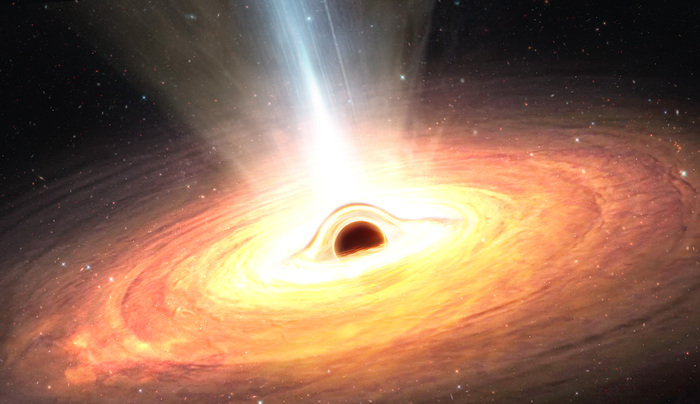A capricious
black hole
like a child has overturned its entire plate:
it generated a hyper-fast wind
so violent that it hurled the matter and gas it fed on in all directions, sweeping away the surrounding interstellar gas and
modifying the structure itself of its galaxy
, called
Markarian 817
.
The impetuous object was spotted by the European Space Agency's XMM-Newton space telescope and the data was analyzed in the study published in The Astrophysical Journal, led by the American University of Michigan and to which the University of Rome also contributed Three.
Black holes consume only part of the matter that spirals around them in the so-called accretion disks: part of this is rejected into space, just as would happen with a naughty child who throws what he has on his plate.
But much more violent episodes can also happen, in which the black hole overturns everything: this not only deprives the black hole of its 'food', but also means that stars can no longer form in a large region.
Until now, this hyper-fast wind had only been detected in extremely massive accretion disks, which exceed the limit of the amount of matter a black hole can absorb, but in this case the Markarian 817 galaxy amounts to a small 'snack'.
The researchers' attention was focused on this galaxy because it was strangely 'silent', that is, it did not seem to emit the energetic X-rays typical of galaxies that host black holes.
The XMM-Newton telescope made it possible to understand why: the ultra-fast winds acted like a blanket, blocking the X-rays. “It is very rare to observe ultra-fast winds that have enough energy to alter the galaxy that hosts them,” says Elias Kammoun of the University of Roma Tre, co-author of the study led by Miranda Zak.
“The fact that Markarian 817 has been producing these winds for about a year suggests that black holes may be reshaping their host galaxies much more than previously thought.”
Reproduction reserved © Copyright ANSA

